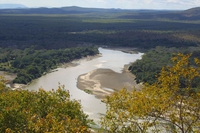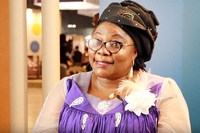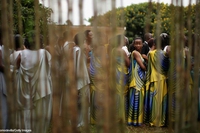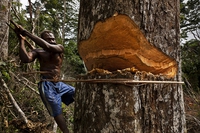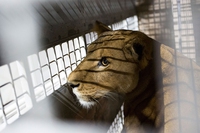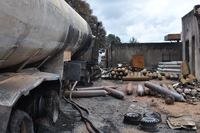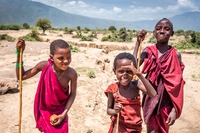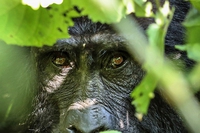
Mountain gorillas’ survival depends on us
Mountain gorillas survive in just two places on Earth. The tale of a unique encounter and how to contribute to these animals’ conservation.
Mountain gorillas survive in just two places on Earth. The tale of a unique encounter and how to contribute to these animals’ conservation.
A large dam along the Luangwa River in Zambia would have posed a serious risk to local people and wildlife, leading hundreds of thousands to oppose it. A call to which the government responded by halting plans to build it.
The Zambian government has reversed a controversial plan to approve a large-scale programme to cull more than 2,000 hippos over a five year period in Eastern province’s Luangwa Valley, situated over 300 kilometers from the capital Lusaka. Animals rights activists cried foul following the original decision, influencing its overturning. Read more: Zambia to allow trophy hunters to
As an African Union Commissioner, Sarah Anyang Agbor is providing education and training to Africa’s youth. Here’s what she told us at Seeds&Chips about making the “African dream” come true.
On 6 April 1994, then Rwanda’s and Burundi’s presidents, Habyarimana and Cyprien Ntaryamira, both from the Hutu ethnic group, died in a mysterious accident. The airplane they were flying on was shot down on its descent into Kigali, the capital of Rwanda, leaving no survivors. The people responsible have never been found, but the most reasonable
The world’s second largest rainforest, in Central Africa’s Congo Basin, is disappearing at alarming rates due to severe deforestation. The underlying reasons are to be found widespread poverty in the region.
Tourist attractions, trophies to be hunted and skeletons to be sold. This is what lions are used as in breeding facilities in South Africa, where they’re not only mistreated but also endangered.
A tanker exploded at a gas and petrol station in Nigeria’s Nasarawa state on the 10th of September, killing 35 people and leaving some burned beyond recognition; 3 citizens had several spine and brain injuries, 2 of them are still on Intesive Care Units. Fela Habila , a local singer, is now stable and out of danger but
The worst case of elephant poaching in African history took place very close to a wildlife sanctuary in Botswana, which was supposed to be their last safe haven.
Indigenous Maasai people have been ordered to leave their homeland in Tanzania’s Serengeti Park for it to be turned into a hunting ground for tourists, a report highlights.
